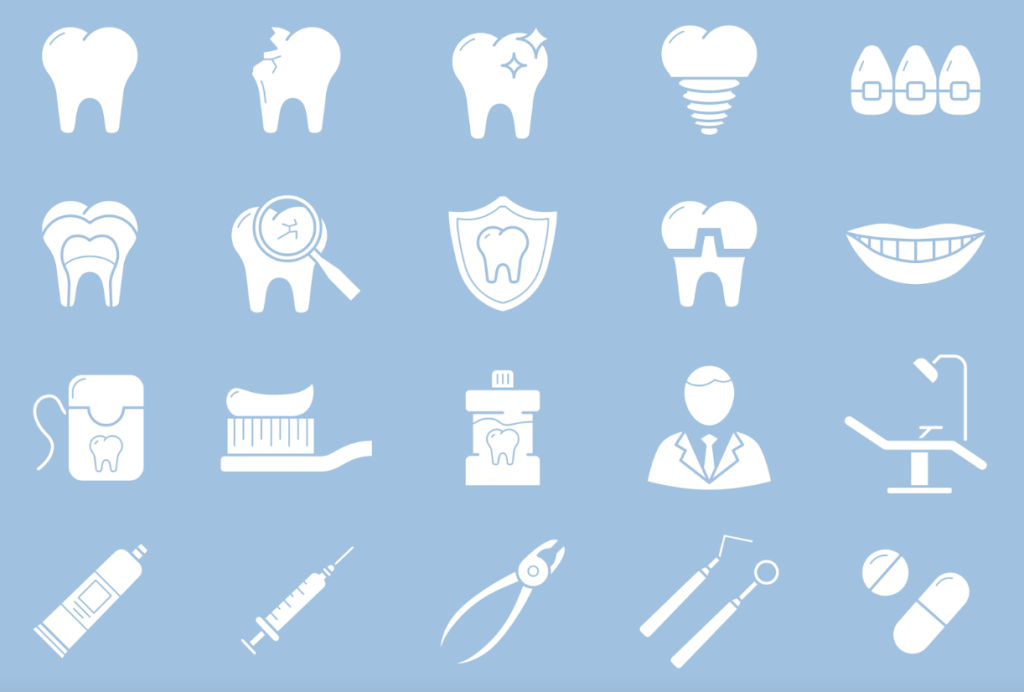Dental crowns are a popular solution to many dental problems, restoring the function and aesthetics of your teeth. They are long-lasting, durable, and can be made to look just like your natural teeth. If you’ve recently had a dental crown put in or are considering getting one, it’s important to know how to take care of them properly. In this blog, we will discuss everything you need to know about dental crowns- from the different types available to the procedure for getting one. We’ll also cover aftercare tips and how long they last. Whether you’re looking for ways to maintain your existing crown or want more information before getting one, this blog has got you covered.

Understanding Dental Crowns
Dental crowns are tooth-shaped caps that are used to cover and protect damaged or weakened teeth. They are commonly placed on teeth that have undergone a root canal or have large fillings. The placement of dental crowns involves removing decayed or damaged parts of the tooth, shaping it to fit the crown, and then cementing the crown in place. It is important to take care of dental crowns by practicing good oral hygiene, including regular brushing and flossing techniques. In some cases, issues such as chipping or discomfort may arise with dental crowns, but these can often be addressed by visiting the dentist for adjustments or repairs. Aftercare for dental crowns involves avoiding certain foods that may damage the crown and scheduling regular dental check-ups to ensure the crown’s longevity.
The Concept Behind Dental Crowns
Dental crowns, also known as tooth-shaped caps, are placed over damaged or decayed teeth to restore their shape, size, and functionality. These crowns can be made from a variety of materials, such as porcelain, metal, or a combination of both. The placement of a dental crown typically involves two visits to the dentist. Aftercare is crucial for the longevity of a dental crown, and regular brushing and flossing play a vital role in maintaining oral hygiene. By following proper aftercare practices, you can help extend the lifespan of your dental crown.
The Necessity of Dental Crowns
Dental crowns serve a crucial purpose in protecting weakened or damaged teeth from further harm. They are not only used for functional restoration but also to enhance the appearance of broken or discolored teeth. These tooth-shaped caps can be crafted from a variety of materials, including ceramic and metal alloys, ensuring durability and a natural tooth-like aesthetic. Proper care and maintenance, such as avoiding hard or sticky foods, practicing good oral hygiene, and attending regular dental check-ups, are key to maintaining the longevity and effectiveness of dental crowns.
What to Expect After the Dental Crown Procedure?
After the dental crown procedure, you may experience some discomfort and sensitivity. It is normal to avoid hard or sticky foods for a few days. Your dentist will give instructions on how to care for your new crown, including proper brushing and flossing techniques. Regular dental checkups are important for the longevity of your crown.
Recovery Period and Expectations
The recovery period after a dental crown procedure typically lasts for a few days to a week. During this time, it is normal to experience some sensitivity or discomfort around the crowned tooth. To manage any discomfort, over-the-counter pain relievers can be helpful. It is important to maintain good oral hygiene practices during the recovery period and avoid hard or sticky foods that could potentially damage the crown. If there are any concerns or issues, it’s crucial to follow up with your dentist for proper guidance and care.
Caring for Your Dental Crown
Regular brushing and flossing are crucial for maintaining the health of your dental crown. This helps prevent plaque buildup and gum disease. It’s important to avoid hard and chewy foods that may potentially damage the crown or surrounding teeth. Schedule regular check-ups with your dentist to ensure the crown’s health and monitor any changes in the surrounding teeth. If you grind or clench your teeth while sleeping, using a mouthguard can protect the crown. And remember, if you experience any discomfort or pain around the crown, seek immediate dental attention.
Daily Care Tips for Your Dental Crown
Proper care of your dental crown is essential to ensure its longevity and maintain good oral health. Brushing and flossing your teeth twice a day is crucial to keep the crown clean and prevent gum disease. Avoid chewing on hard or sticky foods that may damage the crown or surrounding teeth. If you participate in physical activities, wearing a mouthguard can protect your crown from any potential damage. Regular dental check-ups are necessary to monitor the health of your crown and surrounding teeth. If you experience any discomfort or sensitivity around the crown area, inform your dentist immediately.
How Long Do Dental Crowns Last?
The lifespan of dental crowns can range from 5 to 15 years or even longer. Several factors, including oral hygiene, diet, and habits like teeth grinding, can influence their longevity. Regular check-ups with your dentist and proper care can help extend the life of dental crowns.
Conclusion
In conclusion, dental crowns are a reliable solution for restoring damaged teeth and improving oral health. They provide strength, functionality, and aesthetics to your smile. It is important to understand the different types of dental crowns available and choose the one that best suits your needs. After the procedure, proper aftercare is crucial for the longevity of your dental crown. If you experience any complications or concerns, it is important to seek professional help promptly. Remember, with proper care, dental crowns can last for many years, providing you with a confident and beautiful smile. Contact us today at Park Street Dental for more information!

